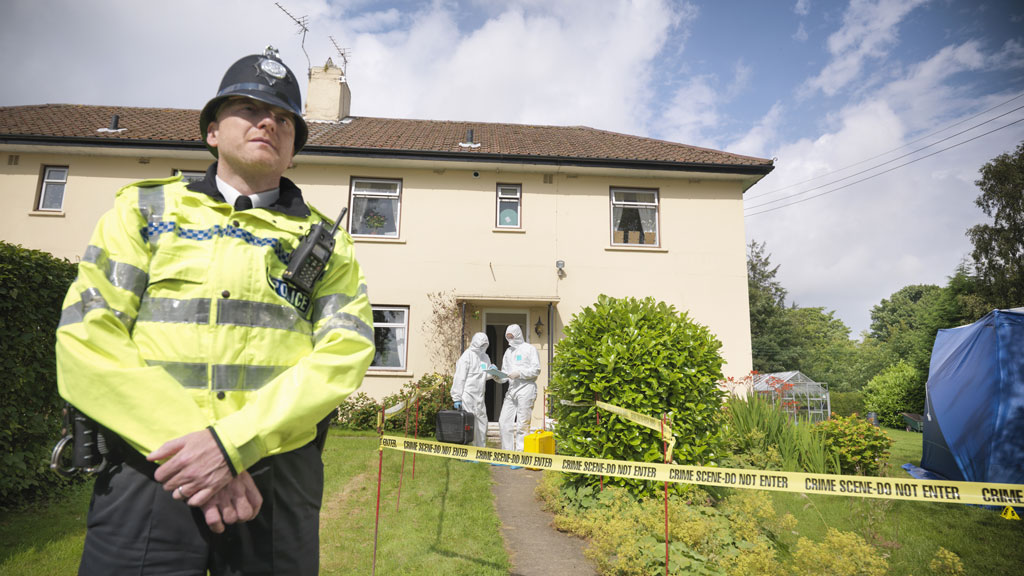First elections held for police commissioners
Two days before elections for the first wave of police and crime commissioners, Channel 4 News looks at the role they will play.

After Thursday’s elections in England and Wales, attention is likely to focus on the low turnout, with predictions from the Electoral Reform Society that just 18.5 per cent of the electorate will bother voting.
Turnout is unlikely to be helped by the fact that people are less inclined to vote in the autumn/winter, when darkness is closing in.
There has also been criticism that the government refused to fund mailshots for the candidates on cost grounds.
Why are police commissioners being introduced?
Home Secretary Theresa May says police commissioners will allow the “voice of the people” to be heard when it comes to policing.
She believes directly-elected commissioners will have more of a democratic mandate than the police authorities they are replacing.
The Home Office says commissioners will mean a closer relationship between communities and the police, with those elected able to make key decisions about tackling gangs, combating drug dealing, street lighting and CCTV.
“Their job is to listen to the public and then respond to their needs, bringing more of a public voice to policing and giving the public a name and a face to complain to if they aren’t satisfied.”
Commissioners will have the power to appoint and dismiss chief constables and will be expected to hold them to account.
They will set policing plans and budgets, engage with their communities and commission victim support services.
They will also be expected to consult victims of crime when they prepare their police and crime plans.
“This will ensure that, for the first time, victims of crime have a clear role in determining what the police should focus on, and how,” says the Home Office.
Where does that leave chief constables?
There are concerns that commissioners will undermine the operational independence of police constables.
The government denies this, saying that commissioners will provide strategic direction, with police officers making the decisions about investigations and arrests.
The Home Office says: “The operations of the police will not be politicised; who is arrested and how investigations work will not become political decisions.”
Who will scrutinise police commissioners?
Their performance will be measured by police and crime panels, which will reflect the political make-up of the area.
These panels will assess whether commissioners achieve their aims and successfully consult the public and victims of crime. They will also be able to veto a commissioner’s choice of chief constable.
Criminal complaints against commissioners will be handled by the Independent Police Complaints Commission.
Will the new commissioners be politicians?
Although the government had hoped commissioners would be independent of political parties, most of them will carry a political label.
Only 54 of the 192 candidates are not linked to a political party, but the Home Office says they will have to swear an oath of impartiality “emphasising both the significance of this new role in local communities and that PCCs are there to serve the people, not a political party or any one section of their electorate”.
Who is standing?
Former deputy prime minister Lord (John) Prescott, who is standing as a police commissioner in Humberside, is the best-known candidate.
Michael Mates, a former Conservative minister, is standing in Hampshire.
Serving MPs are able to put themselves forward, but will have to stand down if elected.
Falklands veteran Simon Weston was hoping to stand in South Wales, but pulled out after Channel 4 News revealed he was technically barred because he had a juvenile criminal record.
How many commissioners will there be?
Following the elections, 41 police commissioners will be in place, one for every police force area in England and Wales (apart from London).
What does the opposition say?
Labour opposed police commissioners in parliament, but has decided to put up candidates throughout the country.
Shadow home secretary Yvette Cooper describes the election campaign as “shambolic”, saying the £100m cost could have been spent on 3,000 police officers instead.
How much will they be paid?
Salaries depend on where a commissioner is based, from £65,000 a year in Dyfed-Powys, Warwickshire and Cumbria to £100,000 in Greater Manchester, the West Midlands and West Yorkshire.
What about London?
Boris Johnson, the mayor of London, is effectively the police commissioner for the capital.
London is the only part of England and Wales where elections are not taking place.




